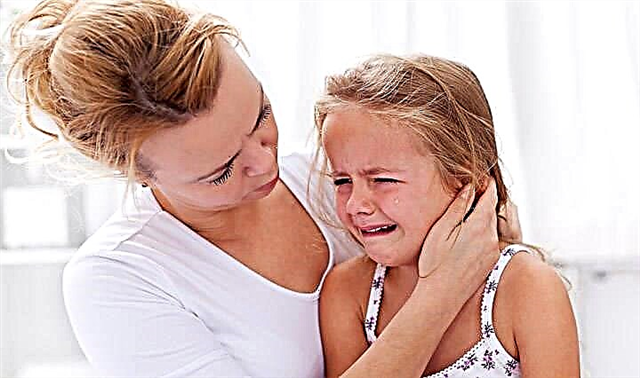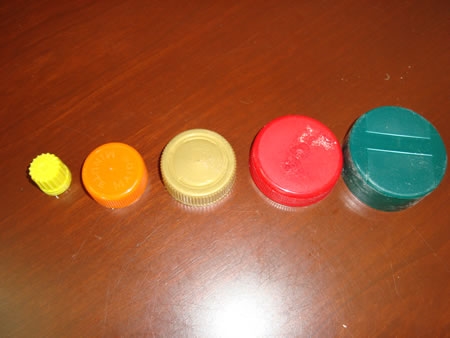
In childhood, many of us were "frightened" by fish oil, while, however, not forgetting to explain that it is very useful for the child's body. We did not agree with this statement, since nothing was more disgusting than this fat for most boys and girls.
Today fish oil for children is produced in very attractive forms - as part of fruit gummies, lozenges that smell of strawberries, raspberries, vanilla. And therefore, it is no longer necessary to frighten anyone with this very fat. Why, why and whether it is necessary to give this product to modern children tells the authoritative pediatrician, candidate of medical sciences Evgeny Komarovsky.

Properties
Fish oil is a natural product obtained from the liver of cod fish. It is always liquid. The color ranges from light yellowish, almost colorless, to deep red-orange. This criterion depends on which particular type of cod liver was extracted from it. In addition, this product is obtained from fatty fish species that live in the cold northern seas - mackerel, herring.
Fish oil has a rather pronounced specific smell - more or less strong, depending on the amount of clupanodonic acid it contains. The value of the product lies in the vitamin D it contains, as well as the omega-3 fatty acid. The latter promotes the synthesis of serotonin, the so-called "hormone of happiness", and therefore the use of fish oil in food has a beneficial effect on the mood and psychological background of a person.
In addition, Omega-3 reduces the risks of developing cardiovascular diseases and diabetes. Glycerides, which form the basis of the product, contribute to normal digestion and metabolism, which is the prevention of obesity, since glycerides are involved in the breakdown of fats that come from food. Vitamins improve the condition of hair, skin, nails, in particular, vitamin D is needed for calcium absorption and normal bone growth.

History
Fish oil is a nightmare for all children who grew up in the Soviet Union. Pediatricians of that time believed that there was not enough polyunsaturated acids in the food of children, and the incidence of rickets, due to a lack of vitamin D, was high. Therefore, the government at the highest level decided to introduce preventive measures that are unprecedented in their scope. As a result, pure fish oil with its characteristic smell and taste was forcibly given to all children in kindergartens and schools.
In 1970, these measures were suspended due to the fact that scientists came to the conclusion: the seas are polluted, and the product obtained from cod fish is not more environmentally friendly, its benefits are less than harm. In 1997, this idea was abandoned, again allowing children to take fish oil, but not forcibly, but on a completely voluntary basis.

Komarovsky about the product
Why in Soviet times children were given fish oil is understandable, says Dr. Komarovsky. The incidence of rickets was then really higher. But this is due not so much to the deficiency of vitamin D in the diet of Soviet babies, as to the widespread artificial feeding with ordinary cow's milk.

Vitamin D is produced in the human body when the skin is exposed to ultraviolet rays (sunlight). It helps the absorption of calcium. If the vitamin is not enough, calcium metabolism is disturbed, which leads to abnormal bone development.

The need to give fish oil was, first of all, due to the fact that no other form of vitamin D existed: there were no synthesized drugs, and not every region had enough sunlight to get the required amount of vitamin D. In addition, feeding with cow's milk caused calcium leaching, because there were no adapted mixtures at that time.
This fully explains why fish oil was highly recommended for infants, pregnant women and nursing mothers. Whether it is necessary to give fish oil to women in an interesting position and to babies today is an ambiguous question, which everyone must answer for himself. In general, according to Evgeny Komarovsky, this is a very useful product, harm from taking it is possible only with a significant violation of the dosage.

Do children need it?
Despite the mass of positive properties, the question of using fish oil for modern children is not so categorical. After all, today, vitamin D deficiency in itself is not such a common situation. All babies who are at risk due to the likelihood of developing rickets are prescribed by pediatricians "Aquadetrim" - an aqueous solution of vitamin D, which is given in certain strict dosages. When taking a child, it is enough to swallow one drop of the drug, which is much easier than drinking a whole spoonful of liquid and unpleasant-smelling fish oil.
In addition, the need for vitamin D is covered by the use of adapted milk formulas, in the composition of which it must be introduced by all manufacturers of baby food.

Sometimes pediatricians prescribe to their young patients of any age, including newborns, an oil solution "Vigantol", which not only replenishes vitamin D deficiency, but also regulates the exchange of calcium and phosphorus in the body.
Thus, there is no need to give your child fish oil. But if there is a desire, then you can feed the baby with it, the main thing is to choose the right product.

How to choose
Fish oil is not a recognized official medicine, and therefore its production is not regulated by strict norms and standards. Buyers can only hope for the decency of the manufacturer, who will not add too much to it, clean well and filter the product.
There are several selection rules:
- If your goal is to buy liquid fat, then be sure to look for the word "Medical" in the title. It is important that the purchased fat is not intended for veterinary or domestic use. This information, sometimes written in very small print, can be found on etiquette.
- If you think carefully about the choice, you will notice that there is not only fish oil on sale, but also "fish" oil. This is not a typo, but fundamentally two different products. Fish oil contains more vitamins, fish oil contains more Omega-3. It's up to you.
- If you plan to buy fish oil in capsules, then it is better to choose capsules made from fish gelatin. It is optimal to buy baby capsules in which manufacturers have added fruit flavors - they will make the process of eating more pleasant. In addition, the dosage of the product in such capsules is already designed for use by children.
The shelf life of fish oil is about 2 years. After this period, he loses the lion's share of its beneficial properties. It is advisable for a child to choose products from time-tested and reviewed manufacturers. Among foreign companies, these are Norwegian enterprises, and Russian ones - Murmansk fish factories.

Dosage for children
It is believed that a useful and safe dosage of this product for children under one and a half years old is calculated by the formula: 60 mg of fat for each kilogram of the child's weight. From one and a half to 15 years, the daily dose is less, it is calculated by the formula: 30 mg per kilogram of weight. A nursing mother needs about 300 mg of the product per day on average. It is important to avoid vitamin D overdose.

Dr. Komarovsky recommends adding fish oil to the diet of children as a preventive measure against rickets, which you can learn about from the video below.



